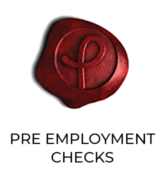First you have to understand that personal security and executive protection is a professional service. Having this said, keep your expectations realistic and do not expect “big muscle bouncer type” executive protection agents with dark sunglasses and with a headset for the radio.
Individuals and professionals trained to handle corporate executives, politicians, wealthy persons, high net worth individuals fall under executive protection or EP in contrast with those trained to handle celebrities, actors, musicians, professional athletes and other high-profile, public individuals are commonly referred to as being bodyguards or talent security.
In general, all qualified professionals are driven to be visibly low profile and are capable of adapting to and remaining as unobtrusive to your lifestyle and environment as possible.
There are several titles a professional may use in order to explain his job: executive protection, protective services, personal protection or personal security. In contrast, security personnel that is providing security services for celebrities, musicians and that type of clientele will most likely call themselves personal bodyguard, security guard, tour security or sometimes also guardian angel,
Like the American Secret Service and the German Bundeskriminalamt as well as the German Landeskriminalamt among other official protection units, the best individuals are proactive, clean cut, intelligent, articulate, educated professionals that are trained to prevent a threat to the clients welfare. There is no place for a “rambo”, “cowboy” or “terminator” in a professional executive protection environment. Contrast these specialists with the stereotypical “big muscle bouncer types” working for musicians, artists a.s.o.. Those “bodyguards” are only able to react to a threat and are usually working as bouncers in the main job and “sidelining” as a bodyguard and generally lack the specialized training.
Just because someone has been in the military, law enforcement or has worked overseas on a PSD – Protective Services Detail with a PMC – Private Military Contractor does not automatically mean they have the right mind-set, training or skill-sets to perform personal security in a most professional way in the private or corporate business sector.
Clients should make sure and have every candidate sign a NDA – Non-Disclosure Agreement before discussing any needs or providing any personal confidential information.
Clients should also look for specific experience, and ask for examples of how the candidate has demonstrated proficiency in specific skills. Just because somebody knows a lot about weapons and has a black belt in karate or kick-boxing does not mean that he or she is a professional executive protection agent. There is so much more …
Ask the candidate about “big name” clients he or she has protected so far. If a candidate starts revealing personal information it is very possible that he or she is violating non-disclosure and confidentiality agreements. As a potential client you also have to ask yourself: If he or she is doing such a name dropping, would he or she also use your name as a reference and share confidential details with third parties, in order to get a new job or to impress somebody? A very good question, isn´t it?!
Bottom line and quick summary:
– Do not pick the cheapest EP provider / offer … the costs factor should not be the main decision making point.
– Sign a NDA with the EP company before sharing any confidential details.
– Avoid “big muscle bouncer types” bodyguards, unless you are in the show biz and you need this for show purposes.
– Armed EP is an implicitness, unless it is not allowed by law.
– The EP agency should provide the client with all important documents such as EP license, liability insurance, concealed weapon permit a.s.o.


